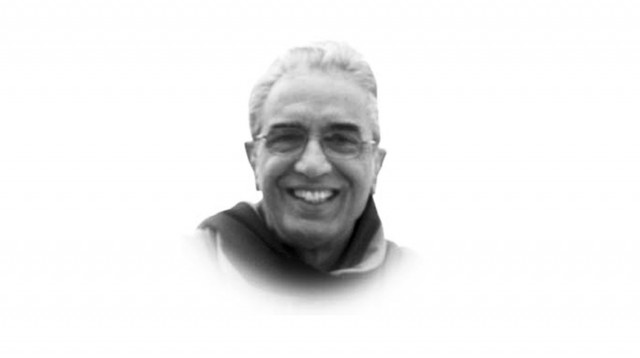Silence
Joachim Prinz might as well have been talking about Pakistan when he wrote about the Germans becoming silent onlookers

The writer is a human resource consultant and has worked for different multinationals
Governor Taseer’s was no ordinary death. His own police guard, Mumtaz Qadri, had gunned him down in broad daylight and proudly owned up to the murder. What prompted Qadri to commit this horrific crime was that the governor had spoken against the increasing misuse of the blasphemy law and had shown his support for a poor, illiterate Christian woman, Aasia Bibi, who was sentenced to death on dubious charges of blasphemy. Sadly, only a very few voices were raised against his murder. Otherwise, there was silence all around.
Silence in the face of atrocity doesn’t stop it. On the contrary, it encourages the perpetrators to commit more atrocities. Sure enough, barely two months later, Shahbaz Bhatti, a Christian federal minister, was gunned down in Islamabad for the same reasons. The Tehreek-e-Taliban Pakistan claimed responsibility for Bhatti’s murder, accusing him of having committed blasphemy. Again, Pakistan remained silent.
Two years on, Taseer’s murderer has still not been punished, with his case pending in the Islamabad High Court. Meanwhile, he lives in jail, reportedly, in comfort, and is even gaining devotees among the jail staff. His victim, Taseer, is remembered only quietly and cautiously. And Aasia Bibi has been languishing in her death cell for over three years now, waiting for her appeal to be heard.
I reached Kuch Khas a few minutes after 3pm. Given the context of Taseer’s death, I was expecting a larger gathering but surprisingly, I was the first one to turn up. Attributing the absence to the habitual tardiness of Pakistanis, I took a seat and waited. In the next half-an-hour, 15 to 20 people turned up and the meeting started. It was a short meeting that ended with the group walking or driving to the Kohsar Market where it lit candles at the spot where Taseer was shot dead. It was a small event conducted with quiet dignity. Similar vigils were organised in Lahore and Karachi by small groups of dedicated people. But what struck one most was the silence that engulfed the country. The silence of those who mattered — the government, the political parties, the media, the clergy, the courts, the lawyers and the civil society at large. Shahbaz Bhatti’s anniversary that fell on March 2, was even quieter. Between the two anniversaries, three horrifying incidents took place, two in Quetta where Hazara Shias were attacked and killed and the third in Lahore, where 45-year-old Dr Ali Haider and his 12-year old son, Murtaza, were killed in cold blood. All these attacks were faith-inspired and the victims were Shias.
Other than the ritualistic statements of condemnation and guarded discussions on talk shows, there were no ‘million-men marches’ or large-scale protests. There was only silence. The Abbas Town carnage was, therefore, inevitable. The motives were the same, and so were the victims and the perpetrators. There was more noise this time. But whether the noise results in some meaningful action is yet to be seen.
It’s worth quoting Joachim Prinz here. He was one of the speakers in the gathering where Martin Luther King made his famous “I have a dream” speech, in Washington, in 1963.
“When I was the rabbi of the Jewish community in Berlin, under the Hitler regime, I learned many things. The most important thing that I learned under those tragic circumstances was that bigotry and hatred are not the most urgent problems. The most urgent, the most disgraceful, the most shameful and the most tragic problem is silence. A great people [Germans], who had created a great civilisation, had become a nation of silent on-lookers. They remained silent in the face of hate, in the face of brutality and in the face of mass murder.”
Joachim Prinz might as well have been talking about Pakistan.
Published in The Express Tribune, March 19th, 2013.















COMMENTS
Comments are moderated and generally will be posted if they are on-topic and not abusive.
For more information, please see our Comments FAQ